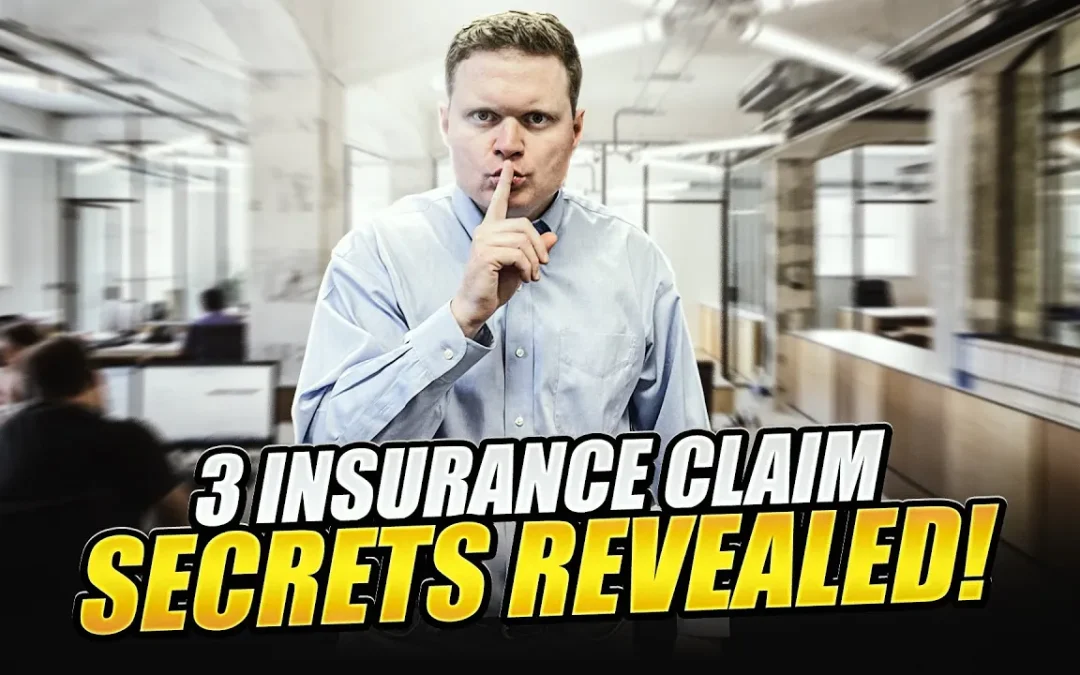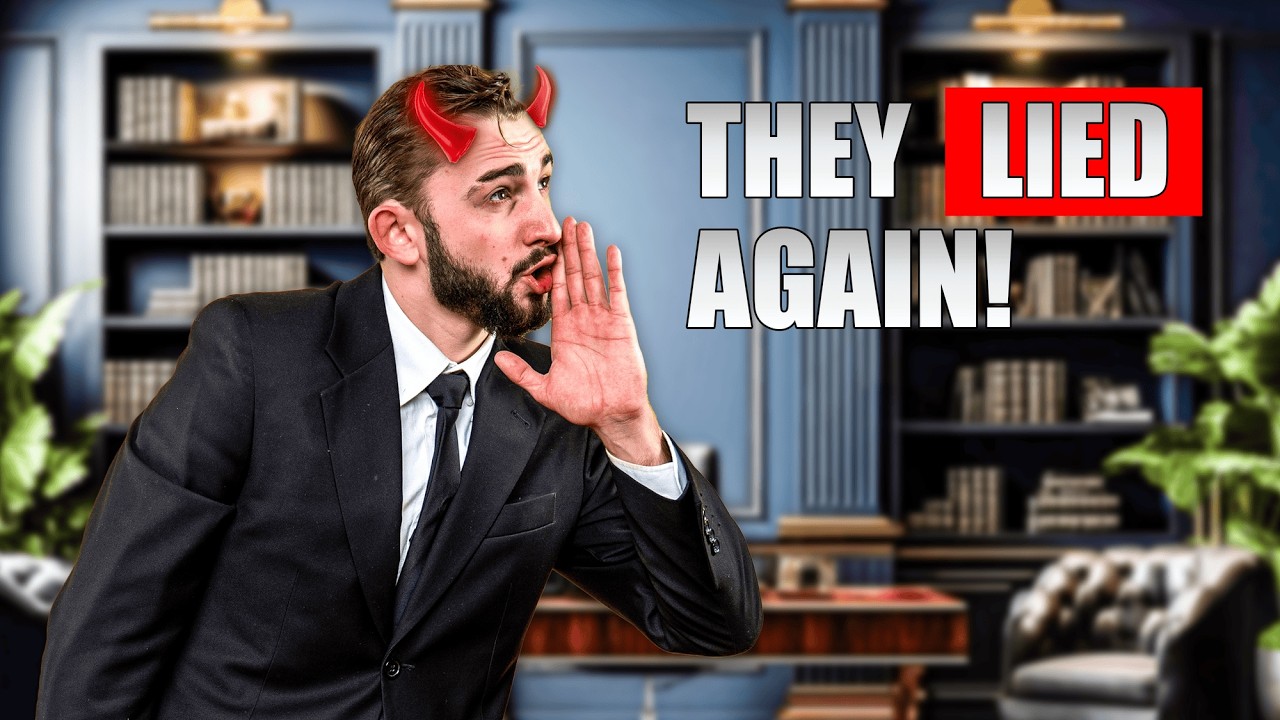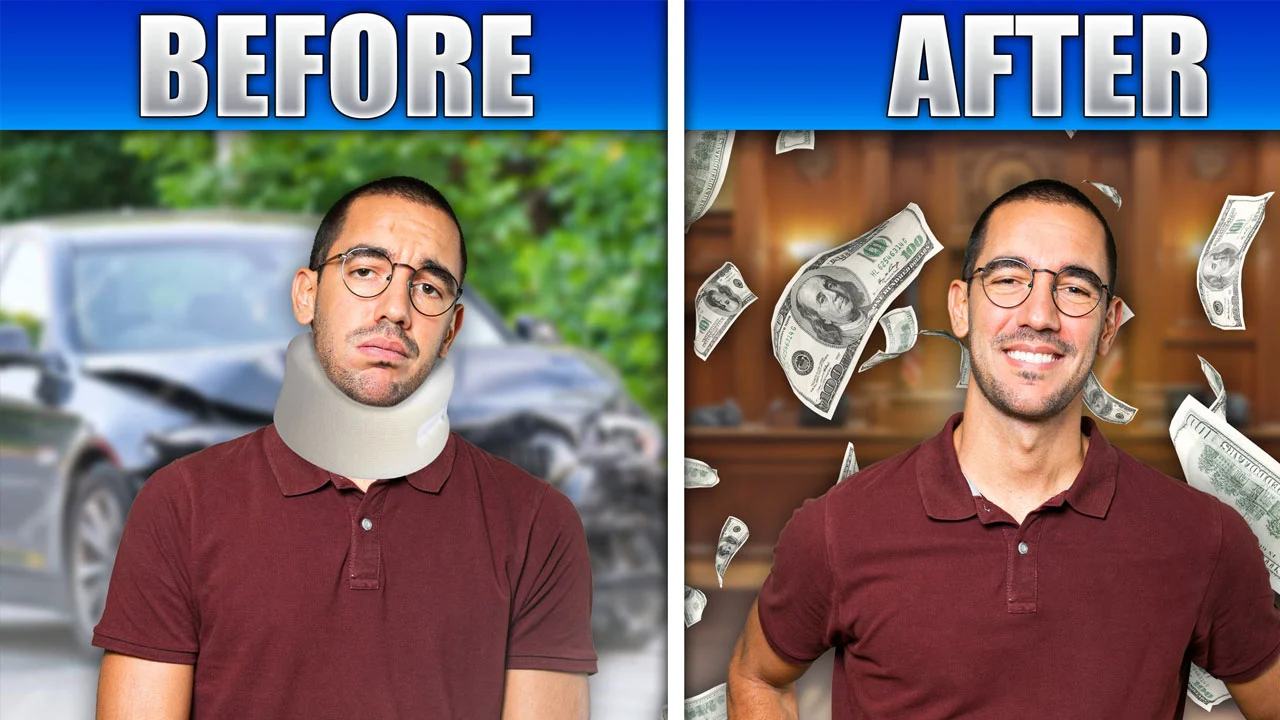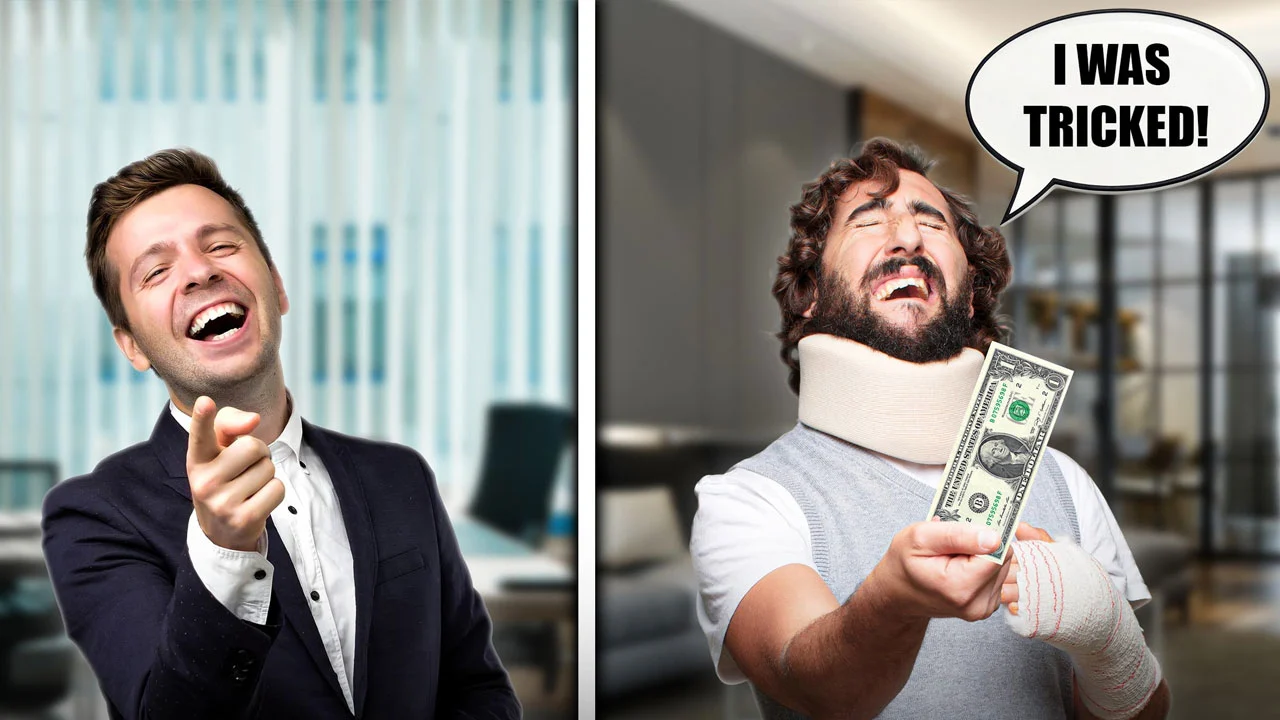I used to be a lawyer for insurance companies and saw firsthand many ways insurance companies try to devalue a person’s viable injury claim. In this video, I will reveal three secrets the insurance companies do not want you to know if you have a viable injury case. To illustrate my points, let me tell you the story of my past client, Valerie.
Valerie’s case involved an automobile accident, but what I’m about to teach in this video will apply to any type of injury case, including not only automobile accidents, but also slip and trip and fall incidents, dog attack cases, and any other type of personal injury case. Valerie was involved in a rear-end motor vehicle accident. The vehicle she occupied was struck in the rear by an inattentive, careless driver.
While Valerie did not go in an ambulance, she was able to make it to the hospital with the help of a friend driving her there. Valerie’s injuries included injuries to her head, left hand, neck, left knee, shoulders, and lower back. X-rays at the hospital did not reveal that Valerie sustained any broken bones, but she was diagnosed with a concussion. After Valerie was discharged from the hospital, she sought additional medical treatment, including physical therapy and pain management treatment. When she had completed her medical treatment, Valerie’s medical bills totaled a little under $27,000. I sent a demand package on behalf of Valerie to the at-fault driver’s insurance company, demanding that they pay out the insurance policy limits. In response to our demand, I got an initial offer of under $17,000 to settle Valerie’s case. However, I knew Valerie’s case was worth much more than that.
Secret 1: The Initial Offer Is Almost Always a Lowball Offer
Unless the offer is for the policy limits, the initial offer on an injury case is almost never the most an insurance company is willing to offer. The initial offer is almost always a lowball offer. You should decline this initial lowball offer. Your case has more value, but the insurance company adjuster will try to say your case does not have significantly more value than the initial offer. You cannot believe the insurance company adjuster. They may be nice and friendly, but they are not on your side. The insurance adjuster’s goal is to get you to take the least amount possible on your case to save the insurance company money. They do not care about your interests.
After Valerie’s lowball settlement offer came in, I wanted to show the insurance company that we were not going to just back down and accept a settlement for well below the value of the case. So, I decided to file a lawsuit against the at-fault driver to show the insurance company we would not be backing down.
Secret 2: Filing a Lawsuit Puts Pressure on the Insurance Company
If you file a lawsuit against the at-fault driver, the at-fault driver’s insurance company will still be on the hook, even though laws prevent you from suing the insurance company directly. The insurance company will have to defend it in the case. Not only will the insurance company still be responsible for payment on your case up to possibly the insurance policy limits, but they will also have to hire a defense lawyer to defend their insured in court.
Filing a lawsuit against the at-fault party puts pressure on the insurance company. They know that after a lawsuit is filed, it could cost the insurance company significant time, money, and resources to litigate the case. Thus, the insurance company typically will place more value on cases after a lawsuit has been filed.
In Valerie’s case, I was not done after I filed the lawsuit. I continued to litigate her case. With Valerie’s help, I answered written discovery questions on behalf of Valerie that were sent over by the defense lawyer retained by the other driver’s insurance company. I also sent written discovery questions to the defense lawyer hired by the insurance company for the at-fault party. My law office defended Valerie at her deposition. Myself and my team also communicated with the defense attorney via phone calls and several emails discussing the case. We also filed a motion with the court asking the court to give us a trial date in the case. The trial court granted us a trial date, but before we could go to trial, the court ordered us to mediate the case.
Secret 3: Working Up Your Case and Pushing It Towards a Trial Can Increase Settlement Offers
If you work up your case and push it towards a trial, the insurance company will typically be willing to offer you more money on your case. By working up your case during the litigation process and pushing your case toward a trial, you put pressure on the insurance company. Insurance companies not only owe injury victims a duty to act in good faith, but they also owe a duty to their insured, the at-fault party, to act in good faith. They are required to make fair and reasonable offers to settle viable injury claims. If they don’t, and you get a bigger verdict at trial than the amount they offered to you prior to the trial, it potentially exposes the insurance company to independent bad faith claims, which could mean the insurance company could be on the hook for even more money than the policy limits in some cases.
Also, by working up your case and getting it close to trial, you show the insurance company you are serious about getting a fair and reasonable settlement offer in your case, and thus an insurance company is likely going to offer you more money before the case has to go to a trial.
In Valerie’s case, we ultimately complied with the court’s order and mediated the case a month prior to the trial date. Mediation is a settlement conference where a neutral party, known as a mediator, who is usually a very experienced lawyer or retired judge, assists the parties in attempting to reach a settlement in the case. We were able to settle Valerie’s case at mediation for nearly $90,000, which was well over five times the amount of the initial offer on Valerie’s case.
Conclusion
The thing is, just because you now know the insurance company secrets that I’ve discussed in this video, it does not guarantee that your injury case will be a success. In fact, many injury cases will fail even if there is another party at fault. And in this video about to pop up here, I’ll tell you the biggest reasons an injury claim may fail. Here at Meagher Injury Lawyers we offer a free case review, feel free to reach out to us today!
Lastly, if you’ve been injured in a car accident, slip or trip and fall incident, or dog attack incident in Kentucky, remember: don’t wait, call Tate.








Recent Comments